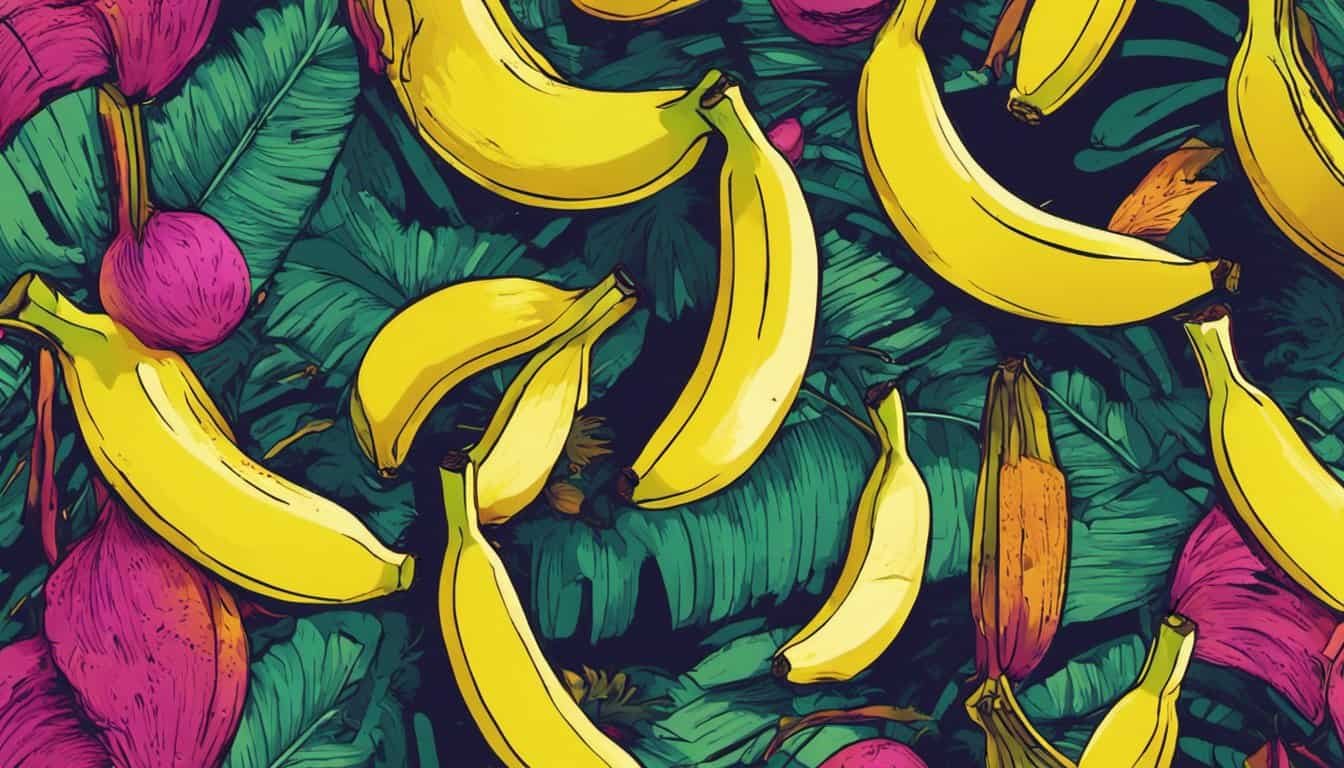Bananas are a staple fruit in grocery stores and homes around the world, but have you ever wondered why they’re so popular? From their nutritional value to their cultural significance, there are many reasons why bananas are beloved by so many.

In this article, we’ll dive into several aspects of the popularity of bananas, including their nutritional value, versatility in recipes, cultural significance and history, and their future in global trade and consumption. Whether you’re a banana lover looking to learn more, or just curious about this ubiquitous fruit, continue reading to uncover more about the beloved banana.
An Introduction to the Popularity of Bananas.
Bananas have become one of the most popular fruits in the world. Their sweet taste and convenient, portable packaging make them a go-to snack for people on the go. But how did bananas become so ubiquitous?

The history of bananas dates back thousands of years to their origins in Southeast Asia. From there, they were introduced to India and Africa before eventually making their way to the Americas during European colonization. Today, they are grown in over 100 countries around the world.
One factor that has contributed to their popularity is their nutritional value. Bananas are a good source of fiber, vitamin C, potassium, and other important nutrients. They have also been touted for their potential health benefits such as improving digestion and reducing risk of heart disease.
Another reason for bananas’ widespread appeal is their versatility in cooking and baking. They can be used in smoothies, baked goods like banana bread, or even as a healthier alternative to ice cream when frozen and blended.
However, it’s not just humans who enjoy eating bananas – primates like chimpanzees also love them! In fact, some researchers believe that humans’ affinity for bananas may be rooted in our evolutionary history as primates.
Overall, whether you’re looking for a quick snack or an ingredient for your next recipe creation, it’s clear that bananas have earned their place as one of the most beloved fruits worldwide.
The nutritional value of bananas is high.
Bananas are not only delicious, but they also pack a powerful nutritional punch. One medium-sized banana contains about 105 calories, 27 grams of carbohydrates, and less than one gram of fat. But there’s more to this fruit than just macronutrients.
Bananas are rich in vitamins and minerals that can benefit your overall health. For example, one medium-sized banana contains about 10% of your daily recommended intake of vitamin C and vitamin B6. Vitamin C is an important antioxidant that helps protect your cells from damage caused by free radicals. Vitamin B6 is essential for brain function and the production of neurotransmitters that regulate mood.
Bananas are also a good source of potassium, which is important for maintaining healthy blood pressure levels. In fact, one medium-sized banana contains about 9% of your daily recommended intake of potassium! This mineral helps regulate fluid balance in the body and can help prevent muscle cramps during exercise.
Lastly, bananas contain dietary fiber – both soluble and insoluble – which can promote digestive health by aiding regular bowel movements and feeding beneficial gut bacteria.
In conclusion, bananas are not just a tasty snack but offer numerous nutritional benefits too! So next time you’re feeling peckish or in need of a quick energy boost before hitting the gym – reach for this humble fruit!
The versatility of bananas in recipes is remarkable.

Bananas are a versatile fruit that can be used in a variety of recipes, from sweet to savory. Not only are they delicious, but they also offer numerous health benefits that make them an excellent addition to any diet.
One of the most common uses for bananas is in baking. They add natural sweetness and moisture to baked goods such as banana bread, muffins, and pancakes. Additionally, mashed bananas can be used as a substitute for eggs or butter in vegan recipes.
But bananas aren’t limited to just sweet treats. They can also be used in savory dishes such as curries or stir-fries. Sliced bananas add a unique texture and flavor to these dishes that is both unexpected and delicious.
Beyond their culinary uses, bananas also have numerous health benefits. They are rich in potassium which helps regulate blood pressure and promote heart health. Bananas are also high in fiber which aids digestion and promotes feelings of fullness.
In conclusion, the versatility of bananas extends beyond just their taste – they offer numerous benefits for both your taste buds and your health. So next time you’re looking for inspiration in the kitchen, don’t overlook this humble fruit – it may just surprise you with its endless possibilities!
The cultural significance and history of bananas.
Bananas have a rich cultural significance and history that stretches back thousands of years. Indigenous to Southeast Asia, bananas were first cultivated by humans in Papua New Guinea around 5,000 BCE. From there, they spread throughout the Pacific Islands and eventually arrived in Africa and the Americas with early human migrations.

« All You Need to Know About Estimating the Mass of Bananas
banana training manual »
Throughout history, bananas have been a symbol of abundance and fertility in many cultures. In ancient Hindu mythology, for example, the banana tree is revered as a sacred plant that represents prosperity and longevity. In many African societies, bananas are associated with fertility rites and are often used as offerings to ancestral spirits.
Bananas also played an important role in colonialism and globalization. During the 19th century, European traders began importing bananas from South America to satisfy the growing demand for exotic fruits among wealthy consumers. This led to the establishment of large-scale banana plantations across Central America and the Caribbean, which were largely controlled by foreign corporations.
Today, bananas remain one of the most popular fruits worldwide due to their nutritional value and convenience. However, concerns about labor practices on banana plantations have led some consumers to seek out fair trade or organic options.
In conclusion, understanding the cultural significance and history of bananas can provide valuable insights into their role as a global commodity today. As we continue to consume this beloved fruit around the world, it is important to acknowledge its complex past while also supporting sustainable practices for its production.
The future of banana global trade and consumption.
Bananas have been a staple in global trade and consumption for centuries, but the future of this beloved fruit is not without its challenges. Climate change, disease, and shifting consumer preferences are just a few factors that could impact the future of bananas.
One potential solution to these challenges lies in genetically modified bananas. Scientists are working on developing varieties that are more resistant to disease and can withstand harsher climate conditions. However, consumer acceptance of GMOs remains a contentious issue.
Another avenue for the future of bananas is through sustainable farming practices. By reducing pesticide use and promoting biodiversity on banana farms, growers can improve soil health and protect against diseases without relying solely on genetic modification.
In terms of consumption trends, there has been a growing demand for organic and fair-trade bananas in recent years. Consumers are becoming more conscious about the environmental impact of their food choices and seeking out products that align with their values.
Overall, the future of bananas in global trade and consumption will depend on a combination of science-driven solutions, sustainable farming practices, and evolving consumer preferences. As we move forward into an uncertain future, it’s important to consider how our choices as consumers can shape the direction of this vital industry.
Check out our other articles to find out even more about banana.

From its nutritional value and versatility in recipes to its rich cultural history, it’s no wonder why bananas are so popular around the world. Bananas have been a staple food for centuries and their global trade continues to expand. This widespread popularity of banana is sure to continue into the future as more people learn about these delicious fruits! If you’d like to find out even more about bananas, be sure to check out our other articles.













